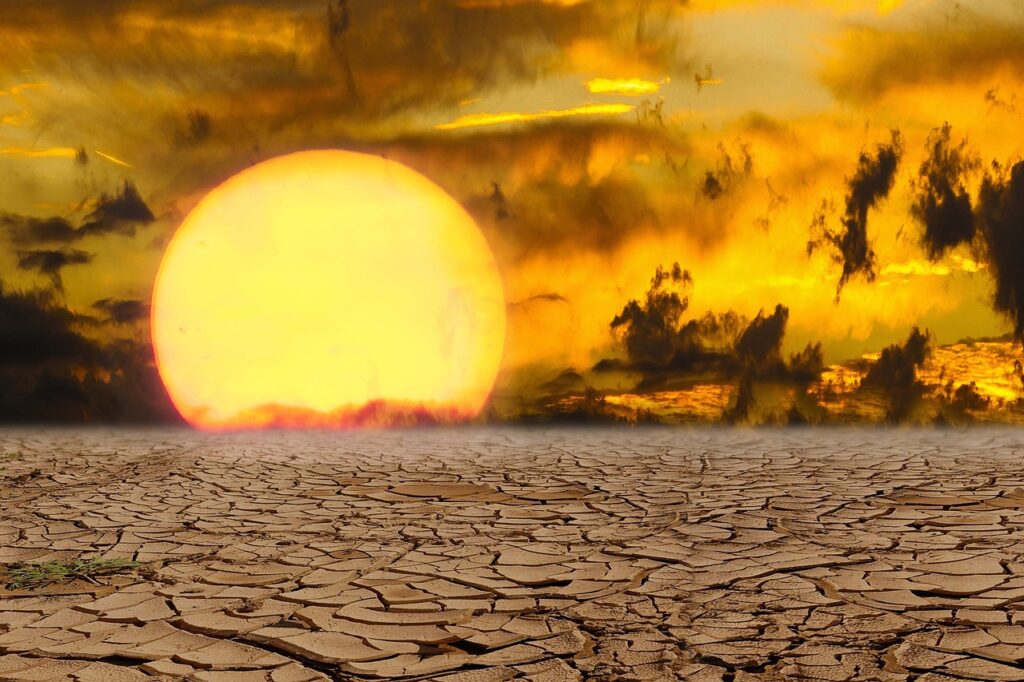Deadly Heatwave Causes Nearly 25,000 People To Flee
An extreme heatwave occurring across Europe has caused tens of thousands of people to flee their homes in search of refuge.
This article is more than 2 years old

Climate change is becoming increasingly more apparent in day-to-day life globally. Parts of Europe are currently experiencing an intense bout of its cataclysmic effects. Nearly 25,000 people in southwest France have been forced to flee their homes due to an intense heatwave. A heatwave that, according to the BBC, meteorologists are calling a “heat apocalypse.”
The extreme heatwave in southwest France has caused numerous wildfires to erupt which, in turn, has forced residents in as many as 15 regions in the southwest of the country to seek refuge elsewhere. Gironde, which is a popular destination for tourists this time of year, has been hit particularly hard. The region has lost approximately 34,000 acres to the fire’s devastating blaze.
Other regions in Europe are feeling the heat just as intensely. The United Kingdom experienced its first-ever “red warning” due to temperatures brought on by the heatwave. Parts of the region topped 100 degrees Fahrenheit for the first time in recorded history. Similarly, one region in Portugal reached a staggering 116 degrees Fahrenheit. Wildfires have continually begun to erupt in the United Kingdom, Spain, and Portugal due to the sweltering heat. At least 66 people have lost their lives as a result of the fires, thus far. “Evidently, climate change kills. It kills people, kills our ecosystem, the biodiversity,” Spain resident Mercedes Pino told the BBC. Greece is also experiencing hotter than average temperatures for this time of year.
Meteorologist Ben Rich broke down the unprecedented conditions driving the “heat apocalypse” across Europe. Rich said that the jet stream is currently running north of Europe. This positioning has led to a build-up of high pressure underneath it. This high pressure is causing temperatures to rise exponentially, ultimately allowing for a heatwave to occur. Further complicating matters, a piece of the jet stream has broken off and is currently circulating independently in the Iberian sea. This cyclical effect is causing hot air to be flung toward European nations, leading to even more intense temperatures. Then, the icing on the cake is that the ground across the region is currently very dry. Rich explained that when the ground is dry it retains more heat, thus also contributing to the elevated temperatures.
It is not yet clear when the extreme heatwave will subside in Europe. However, what is clear is that what is now considered an anomaly is certain to become the norm in the coming years. Enrique Sanchez, the Dean of the Faculty of Environmental Sciences and Biochemistry at The University of Castilla-La Mancha in Spain, emphasized that dangerous heatwaves would soon become characteristic of a region that was so long immune to such inhospitable weather. “In the long term, I mean in the following years, there is no way that the temperatures are going to [not] increase, so heat wave events will become more and more common… all along Europe,” lamented Sanchez.
What’s even more concerning than the heat itself is the consequences that it will have on the regions that it repeatedly affects. France, for instance, is already at risk of losing many of the vineyards that have long produced wines from grapes only growable in certain weather. And similar to California, the occurrence of wildfires will likely lead to changes in air quality and the destruction of numerous towns and habitats. Ultimately, the current heatwave in Europe is very likely serving as a scary window into what the future holds.





